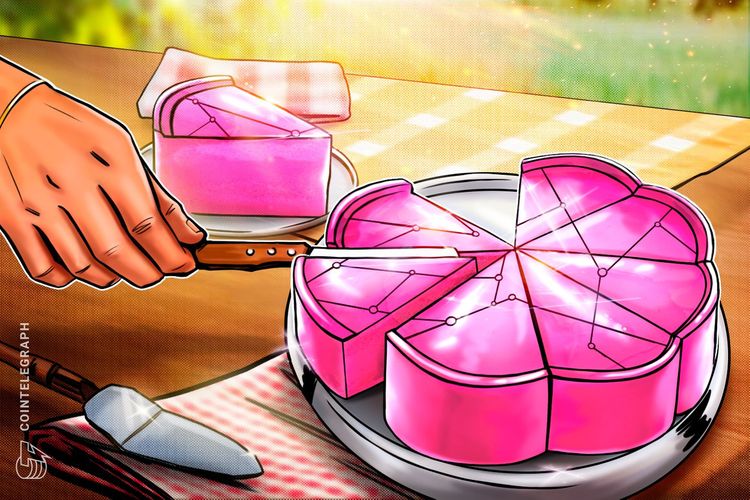Here’s how big food and beverage brands are using NFTs: Report

The primary factors that are bolstering the market include the acceptance of blockchain technology and the craving for NFTs to ensure openness and traceability in the food sector.

NFTs are becoming more popular in the food and beverage industry, and several fast-food chains are expressing curiosity in this type of asset.
According to a study conducted by Research and Markets, the anticipated worth of the global food and beverage NFT market is projected to exceed $2 billion by 2032. This data becomes apparent as prominent fast-food chains like Pizza Hut and Papa John's have recently begun exploring novel approaches to incorporate NFTs into their promotional techniques.
According to the report, the primary factors boosting the market include the acceptance of blockchain technology and the need for NFTs to ensure transparency and trackability in the food sector. In addition, the market is also expected to be propelled by distinct ownership possibilities, the integration of NFTs in virtual reality and video games, and promotional efforts by food companies and restaurants during the projected timeframe.
NFTs are exceptional digital properties authenticated using blockchain technology – a decentralized digital record that registers transactions openly and reliably.
The worth of an NFT can fluctuate significantly based on how scarce and trendy the object it portrays is, resulting in certain NFTs being purchased for millions of dollars. In the culinary world, the NFT industry is making progress due to the need for openness and the ability to trace products. It is essential for customers, sellers, and authorities to track and authenticate the source, quality, and safety of food.
Pizza Hut Canada hopped on the NFT bandwagon in March 2021 by introducing their "1 Byte Favorites" collection, which consisted of digital slices of pizza. These NFTs were showcased on Rarible and each slice had its own distinct recipe, including crowd-pleasers like Hawaiian, Pepperoni, Canadian, and Margherita. The NFTs gained significant traction and were quickly sold out, effectively serving as a promotional strategy for Pizza Hut's pan pizzas and encouraging customer involvement.
NFT-inspired payment cards, the upcoming trend of Web3 technology, according to Animoca founder's $30 million financial backing.
Papa John's, a popular pizza delivery franchise, ventured into the world of non-fungible tokens (NFTs) by introducing their "Hot Bags" collection. This collection featured unique designs of handbags, aimed at promoting their brand-new product line called Papa John's X Cheddar, which offers various merchandise. These NFTs were created and stored on the Tezos blockchain, with the numerical values representing the year Papa John's was established, way back in 1984.
Nevertheless, the report highlights that the implementation of NFTs in the food and drink sector is impeded by intricate technicalities, particularly for smaller manufacturers. Additionally, the limited knowledge among both consumers and key players within the industry regarding the advantages of NFTs also presents a hurdle.
Article: Utilizing NFT technology to tokenize music royalties could potentially benefit emerging artists, akin to the success experienced by renowned musician Taylor Swift.













